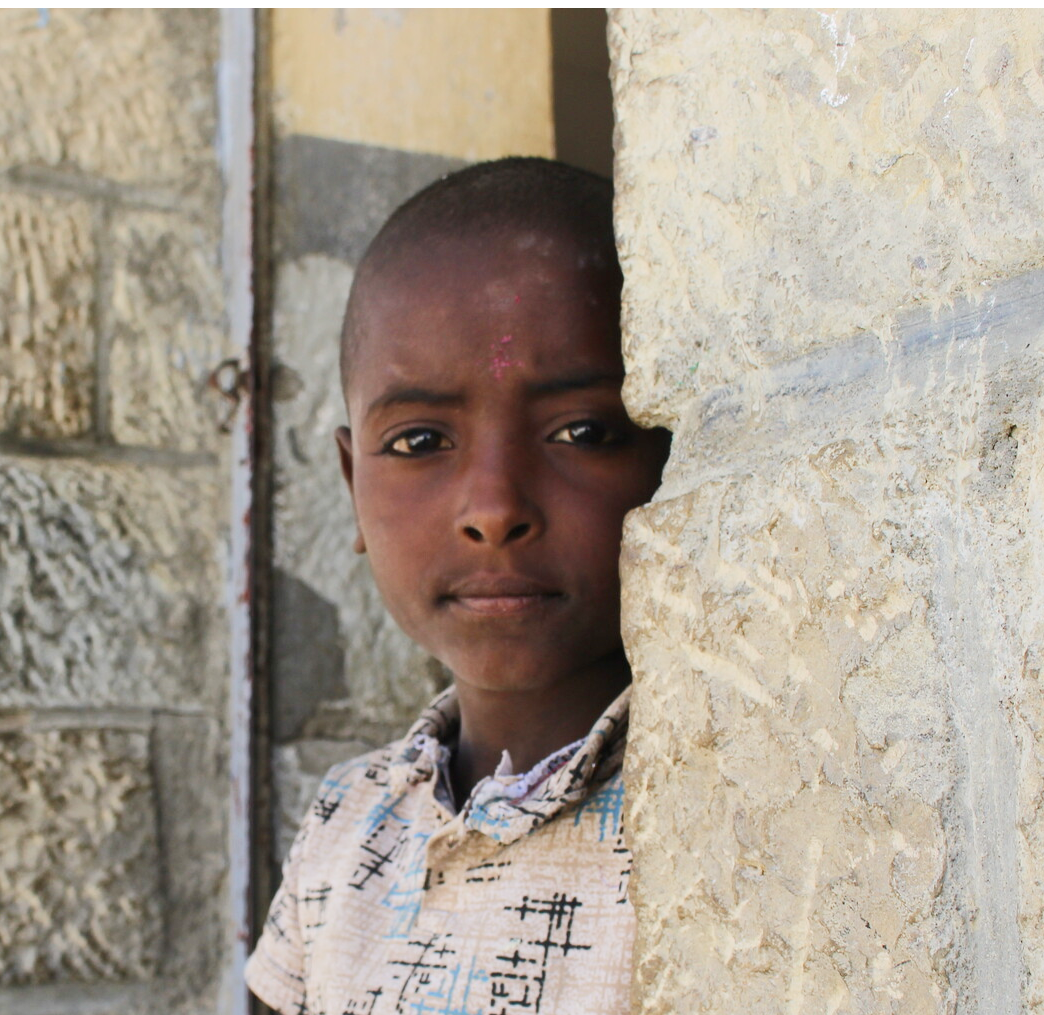
Many people have died of hunger here. You can see it in the eyes of our children.
During a recent trip to Tigray, our team witnessed the heartbreaking reality faced by the children of Gendet Primary School and for their community.
On a recent visit to Gendet Primary School in Tigray, Ethiopia, Mary’s Meals representatives were met by two rows of children and teachers lining the path up to the school. There was a quiet chant coming from the children, so soft it took a while to decipher the words.
They were repeating: “we need food, we need food, we need food.”
The rows should have been much bigger. After two years of devastating war, the country is now facing a catastrophic drought that is further compounding the misery here. It’s particularly hard to hear about the impact on communities who were beginning to flourish before the conflict began. People talk of the investment in education, the sacrifices parents made to send their children to university, and the resilience they were trying to build into a region which knew it must somehow protect itself against increasing risks from climate change.
At the school, the community gathered to explain why they wanted Mary’s Meals to start its school feeding programme here, and why half the pupils (around 600 of them) who should have been there, lining the path with them, don’t come here anymore

Amongst the parents gathered – many with younger children clinging to them – it was clear that this request for support is becoming desperate. One community elder called Beyne Bsrat stood frailer than the rest but, when he spoke, his voice was clear:
“Before the war, this community was hardworking and trying to fulfil the needs of every household, generally we were in a good situation.
“But after the war, the troops had looted everything – they slaughtered our animals and ate them for themselves, they took away our agricultural materials and they even burned the school chairs as firewood. How can we imagine students are learning in this looted environment, they face so many challenges.
“But our challenge is not only the conflict. We are also affected by the drought.
“In the famine in the 80s, I took my family to Sudan and we lived there for two years – at that time there was at least an option to cross the border and not be turned back but now everything is closed.
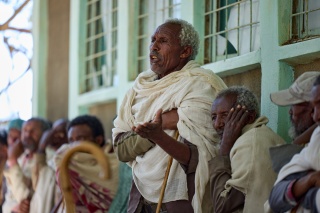
“The only option we have now is to wait for support, or die in our community, because we don’t have anything to eat in this community.
“We are 100% dependant on natural rainwater. We sowed the crops, but no rain came to this community at all.
“Our evidence is on our face and on the faces of our children. Before we were looking good, but now our faces have completely changed. Our faces are the witness to our hunger. The children’s collarbones are very visible, they are very skinny now.
“Many people have died of hunger here. You can see it in the eyes of our children.
“I don’t know exactly how many people have died from hunger, but I can tell you that my neighbour and my friend died because of hunger. I witness only what I see in my own neighbourhood and community, but I know it is a great many. If the situation continues like this, the deaths will surely increase.
“Some community members are supported by family elsewhere who send some money back for the most vulnerable members. Without this, the deaths would be even higher.
“When I was a child and I was hungry, I wouldn’t go to school. I remember the feeling; I was thinking always about food. If a child is in hunger, they are constantly thinking about food. It is even difficult to attend class, they cannot think about school or anything else, just food.
“Students are dropping out of school even now. If there is not any support or solution in this community, our only option is dying.
“Before the war, my son was asking all the time to enrol, even though he was too young. Now he is nine years old but only in Grade 1 because schools were closed for so many years. Now I am trying to send my son to school many times, but he is not interested, many times he is absent.”
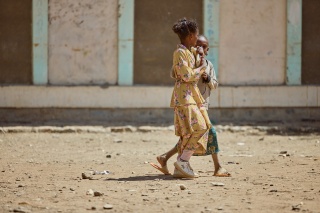
As Beyne took his seat again, we heard more and more stories sharing the same pain. The community chairman Gebrehiwot Araya told us that there were more than 200 infants and 140 lactating mothers suffering from malnutrition. That some health professionals came to do an assessment and found that more than 30 children were ‘red’. That means they were severely malnourished and should have sought treatment immediately at the nearest health facility. But so far, there has been no support here.
A teacher told us that before the drought the land around the school was very green, and before the war it was full of cattle. Now the earth resembles dust. They all worry that, with the number of children leaving to beg or find work in other areas, the school will have to close.
For children who have already seen so much taken from them, losing their chance for education would be devastating. This community and the wider region of Tigray can’t rebuild and move forward if its children are too hungry to go to school.
Beyne is clear the answer lies in the promise of a school feeding programme.
“If Mary’s Meals was here, our children would become free and would be more interested to come to school and they would physically change. The first thing that would change would be the mentality of the students. And then it would change the whole society, because if one child is properly educated, the benefit is not just for themselves and their family, but the whole country also will be changed.”
Gendet Primary School is on Mary’s Meals’ list for expansion. We don’t serve meals there yet, but we could do so – and soon – if we can raise the necessary funds. Together we can answer those heartbreaking, whispered chants for food. Please give what you can, knowing the sombre faces of the children will be able to smile once more.
Learn more about the current situation in Ethiopia
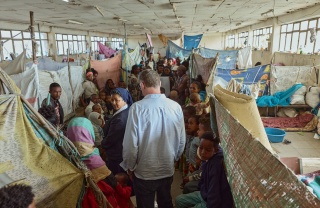
An appeal from Magnus MacFarlane-Barrow on the Crisis in Ethiopia
Voices from Tigray: Nowhere to turn
Voices from Tigray: Carrying the weight of the world
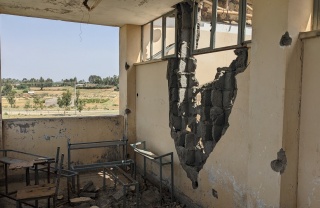
The world is failing the people of Tigray
